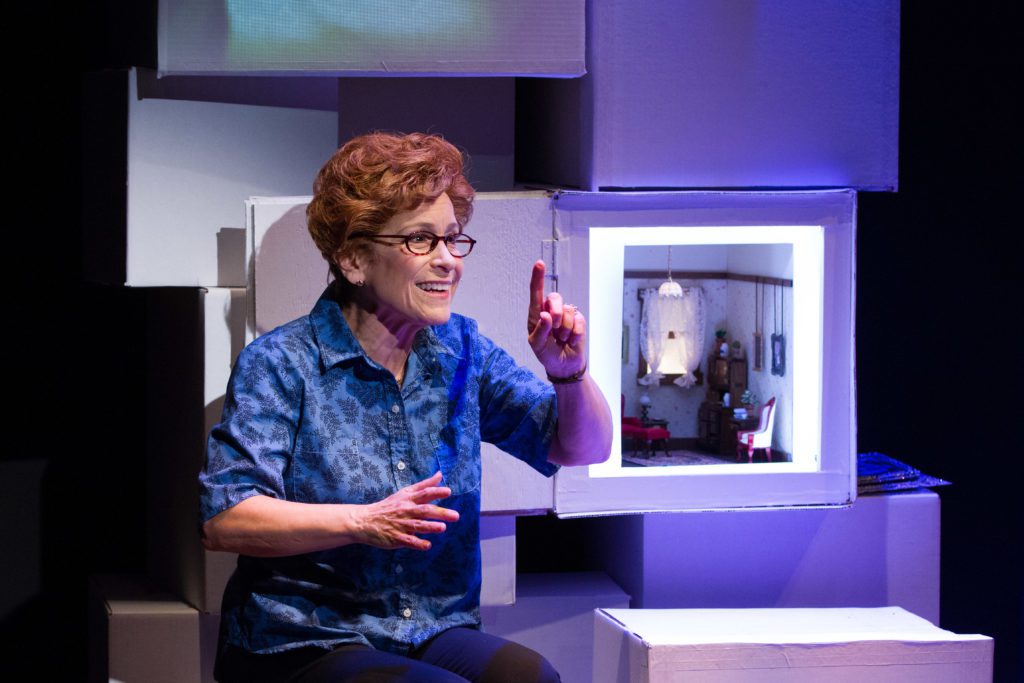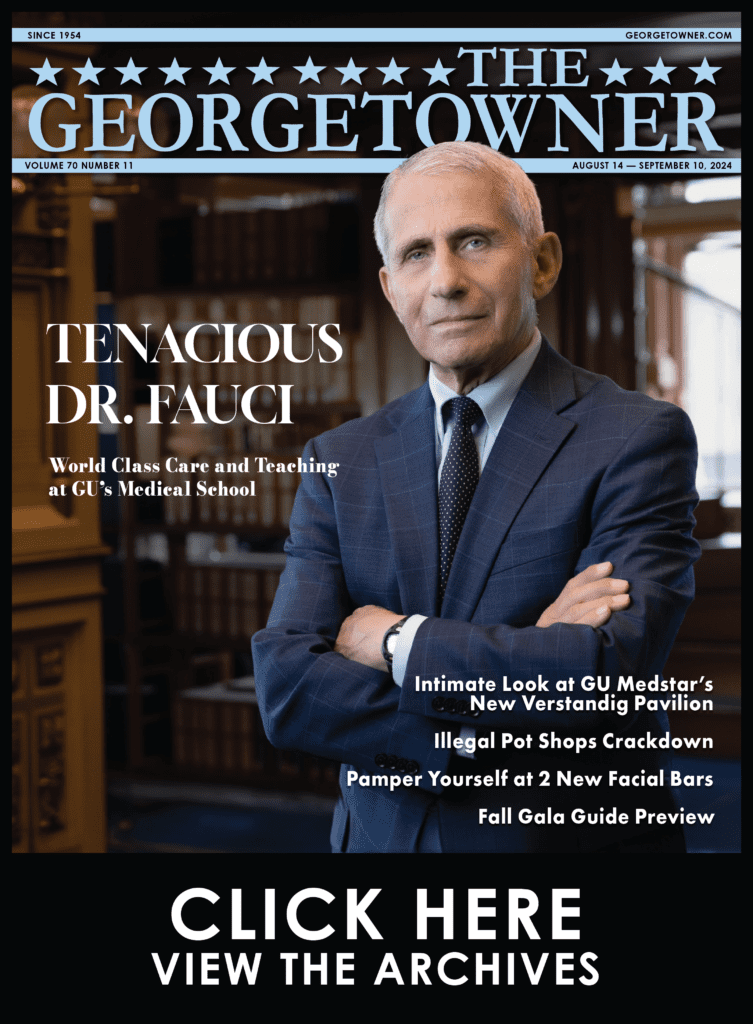Dr. Ruth Unpacks at Theater J
By • March 1, 2018 0 675

Seeing “Becoming Dr. Ruth” at Theater J may not be quite like watching America’s favorite sex therapist doing stand-up comedy, but it’s close.
Set in 1997, a few months after the death of third-husband Fred, the play gives us Ruth K. Westheimer not as a little old lady (she is now 89), but as a little, not-so-old lady. If unavoidably a bit taller than the 4-foot-7 dynamo she portrays, Naomi Jacobson is convincing, accent and all.
Playwright Mark St. Germain’s premise is that Dr. Ruth is preparing to move out of her apartment in Washington Heights, a hilly neighborhood at the northern end of Manhattan where many German Jews settled beginning in the 1930s. Now home to a large Dominican community, Washington Heights is the heights in “In the Heights,” Lin-Manuel Miranda’s pre-“Hamilton” musical.
The set is easy to describe: boxes. A small number of genuine U-Haul packing boxes are strewn around at center stage. On both sides and upstage, stacks of white boxes rise to the (imaginary) ceiling of the apartment. In a surrealistic touch, more white boxes dangle in midair at the rear.
In a program note, scenic designer Paige Hathaway writes that she and director Holly Twyford “latched onto the idea that the show is about Dr. Ruth unpacking her life to share with the audience.” She explains: “We wanted to allow the set to reveal things and allow the actress to engage with it in an unexpected way that would keep the audience riveted.”
The boxes become magic boxes, in other words, opening to dollhouse versions of homes where Westheimer lived; holding various props (Dr. Ruth’s Game of Good Sex, her turtle collection, copies of True Confessions magazine, which she used to teach herself English); representing the WYNY studio where she hosted the call-in program “Sexually Speaking”; and serving as a screen for projections of family photos, background images and symbols — including barbed wire and swastikas.
The name Dr. Ruth was born with, in Germany on June 4, 1928, was Karola Ruth Siegel. She was fortunate enough to escape the Nazi regime on a Kindertransport, one of the trains that took Jewish refugee children to safety in Switzerland, in her case, and elsewhere. (Only 300 children were taken in by Switzerland; Great Britain accepted the most, around 10,000.) Her parents did not survive, which becomes a motif in the play, as it presumably was in her life.
After the war, she went to Palestine — where she lived on a kibbutz and became a sniper in the Haganah paramilitary forces — then to Paris and in 1956 to New York, where she got a master’s degree in sociology from the New School for Social Research and a doctorate in education from Teachers College, Columbia University. Working for Planned Parenthood and training interviewers led to her interest in how people make choices about sex, marriage and reproduction, and to an opportunity to become, in the 1980s, a sort of randy grandma of the airwaves.
Always onstage, answering her 1990s-era cell phone, opening and climbing on boxes, breaking into dance, Jacobson has a lot to do. At one point, wearing headphones in the makeshift radio studio, she entertainingly acts out taking a series of calls from listeners, their voices coming through speakers. She has to modulate from one-liners — she tells how Fred responded to a question about his sex life from Diane Sawyer: “Diane, the shoemaker’s children don’t get any shoes” — to reliving painful experiences (“Jeckes,” she says, using an Israeli term for the German Jewish refugees, “don’t cry”).
The show runs through Sunday, March 18, in the Edlavitch Jewish Community Center’s 230-seat theater on 16th Street NW. Twyford and Jacobson will conduct a public conversation on Sunday, March 4, after the 2 p.m. matinee. There will also be a cast talk-back on Thursday, March 8, after the 7:30 p.m. performance.
A symposium, “Talking about Sex: An Evolving Conversation,” on Sunday, March 11, after the 2 p.m. matinee, will feature sex therapist Hani Miletski and sexual machine specialist Rachel S. Rubin.
Finally, Dr. Ruth, in the flesh, will be interviewed by author and Georgetown University professor Deborah Tannen at Theater J’s annual benefit on Sunday, March 25, at Washington Hebrew Congregation on Macomb Street NW. Tickets for the event, honoring attorney Hank Schlosberg, are $300 and up.

